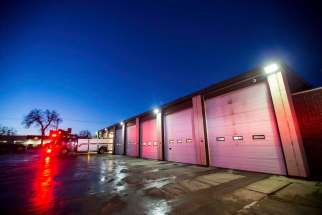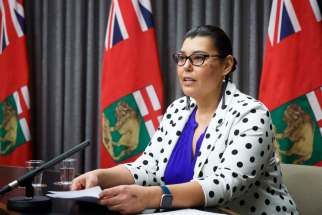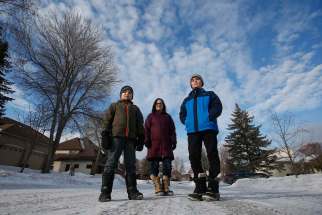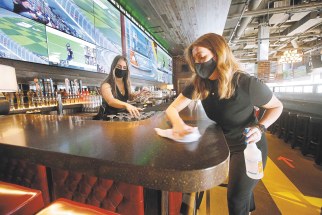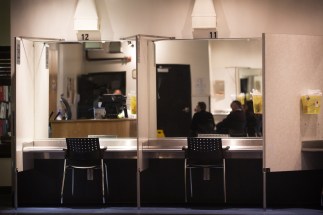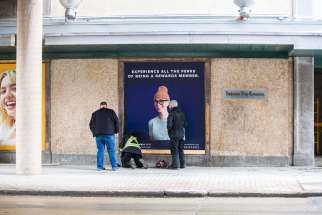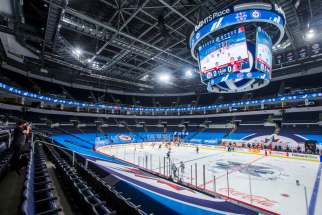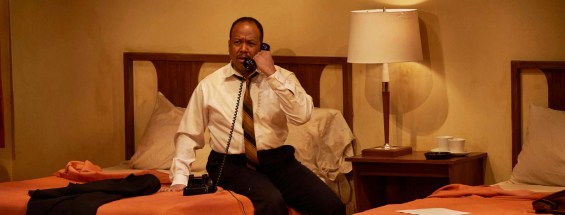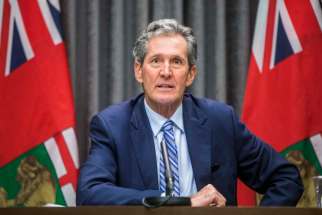Task force prepares to weed out vaccine-seekers who falsely identify as First Nations
Read this article for free:
or
Already have an account? Log in here »
To continue reading, please subscribe:
Monthly Digital Subscription
$0 for the first 4 weeks*
- Enjoy unlimited reading on winnipegfreepress.com
- Read the E-Edition, our digital replica newspaper
- Access News Break, our award-winning app
- Play interactive puzzles
*No charge for 4 weeks then price increases to the regular rate of $19.00 plus GST every four weeks. Offer available to new and qualified returning subscribers only. Cancel any time.
Monthly Digital Subscription
$4.75/week*
- Enjoy unlimited reading on winnipegfreepress.com
- Read the E-Edition, our digital replica newspaper
- Access News Break, our award-winning app
- Play interactive puzzles
*Billed as $19 plus GST every four weeks. Cancel any time.
To continue reading, please subscribe:
Add Free Press access to your Brandon Sun subscription for only an additional
$1 for the first 4 weeks*
*Your next subscription payment will increase by $1.00 and you will be charged $16.99 plus GST for four weeks. After four weeks, your payment will increase to $23.99 plus GST every four weeks.
Read unlimited articles for free today:
or
Already have an account? Log in here »
Hey there, time traveller!
This article was published 24/02/2021 (1749 days ago), so information in it may no longer be current.
Manitoba officials are preparing to delve into the thorny issue of Indigenous identity as they prioritize First Nations people for COVID-19 vaccines, including people who don’t have an Indian status card.
“Too often we see the ‘pretendian’ phenomena, where people falsely identify as First Nations, or claim distant or tenuous ancestral connections for personal gain,” said Dr. Marcia Anderson, a medical officer of health who serves on the First Nations pandemic team.
The province has opened up vaccinations for members of the public who are 95 or older, as well as First Nations people 75 and older, recognizing that they face more severe COVID-19 outcomes and have a shorter life expectancy.
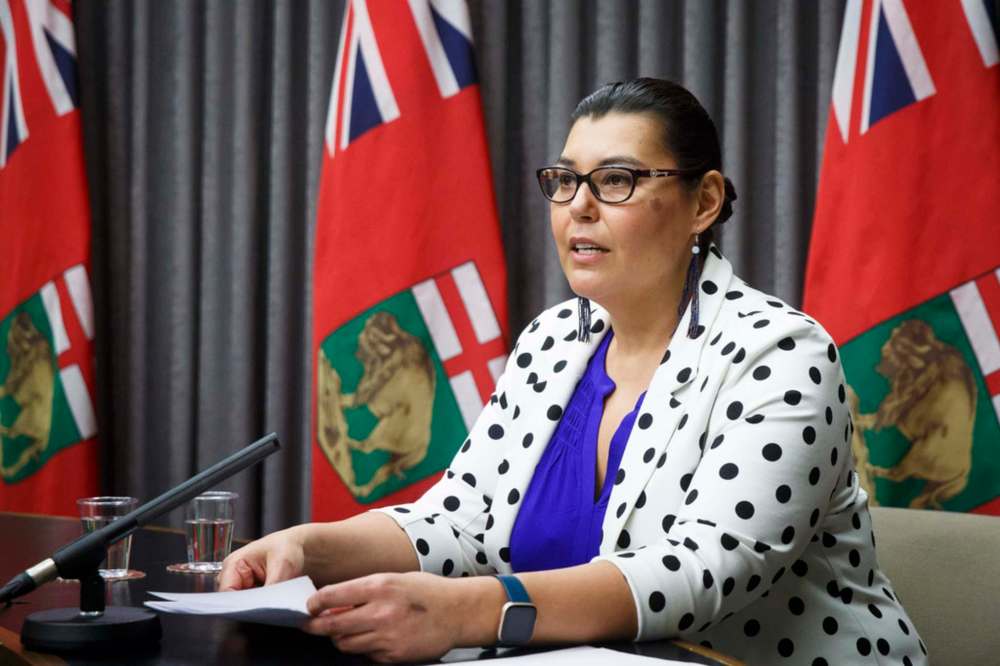
Initially, public health staff will arrange appointments for anyone born before Dec. 31, 1945, who identifies as First Nations.
In future, there will be a separate process in which people are asked for their Indian status number, and officials will sort out who can claim to be First Nations without having a status number. Anderson said that might include proof that an immediate First Nations relative has a status number.
She noted that arbitrary, colonial laws have removed Indian status from certain groups, such as women who married non-Indigenous men and their children, and those who were given up for adoption in the Sixties Scoop.
“Too often we see the ‘pretendian’ phenomena, where people falsely identify as First Nations, or claim distant or tenuous ancestral connections for personal gain.”
– Dr. Marcia Anderson
She noted that federal rules that define who qualifies for Indian status weren’t designed by Indigenous people, such as whether their blood line includes enough First Nations ancestry.
“At this time people will be asked if they self-identify as First Nations, and that response will be considered sufficient,” Anderson said.
Anderson said “in the coming weeks,” a specialized team would undertake this “escalation process,” but she did not say who would decide which applicants are faking an Indigenous background.
No explanation for 10-day lag
The First Nations pandemic team still has given no explanation for the 10 days that Moderna vaccines sat in a freezer while chiefs waited for their communities’ booster shots.
Manitoba’s second shipment of Moderna vaccines arrived in Winnipeg on Feb. 6, a few days later than Ottawa’s initial timeline.
The First Nations pandemic team still has given no explanation for the 10 days that Moderna vaccines sat in a freezer while chiefs waited for their communities’ booster shots.
Manitoba’s second shipment of Moderna vaccines arrived in Winnipeg on Feb. 6, a few days later than Ottawa’s initial timeline.
However, the shots did not reach reserves until Feb. 16, causing chiefs to complain about shifting timelines and last-minute notice about the shipments.
Moderna says patients are supposed to receive their second dose either 28 days after the first, or as close to that as possible. Yet some reserves didn’t receive the second shot until about six weeks later, which is the longest delay Ottawa deems to be safe.
The provincial and federal governments have said it’s up to the First Nations to indicate when they want shots transported, and Dr. Marcia Anderson offered no explanation Wednesday for the 10-day lag.
She instead noted that a later round of shipments had beat expected timelines.
“We were able to start shipping out the second doses earlier than we had anticipated,” said Anderson, referencing the delay in Moderna shots reaching Canada.
— Dylan Robertson
“We want to make sure that this done in a way that is safe for people and does not exclude our First Nations relatives, who because of the complicated and various processes of colonization do not have Indian status cards,” she said, adding she wasn’t sure how many people fall into this category.
“Our goal will be to ensure that all First Nations people, regardless of their status under the Indian Act, have equitable access to the vaccines,” said Anderson.
She noted there have been numerous cases recently in which people claimed to be Indigenous so they could get a job or arts funding.
CBC halted its series Trickster last fall over allegations director Michelle Latimer had faked her Indigenous ancestry. Latimer denies the allegation and is suing the CBC for defamation.
The First Nations pandemic team still has given no explanation for the 10 days that Moderna vaccines sat in a freezer while chiefs waited for their communities’ booster shots.
“Our goal will be to ensure that all First Nations people, regardless of their status under the Indian Act, have equitable access to the vaccines.”
– Dr. Marcia Anderson
Manitoba’s second shipment of Moderna vaccines arrived in Winnipeg on Feb. 6, a few days later than Ottawa’s initial timeline.
“This harms First Nations people by taking away opportunities from qualified First Nations people,” Anderson said.
“I never imagined that one of the harmful ripple effects would be that non-registered or non-status First Nations people would face the risk of not being able to get a vaccine at a time when they rightly should be able to.”
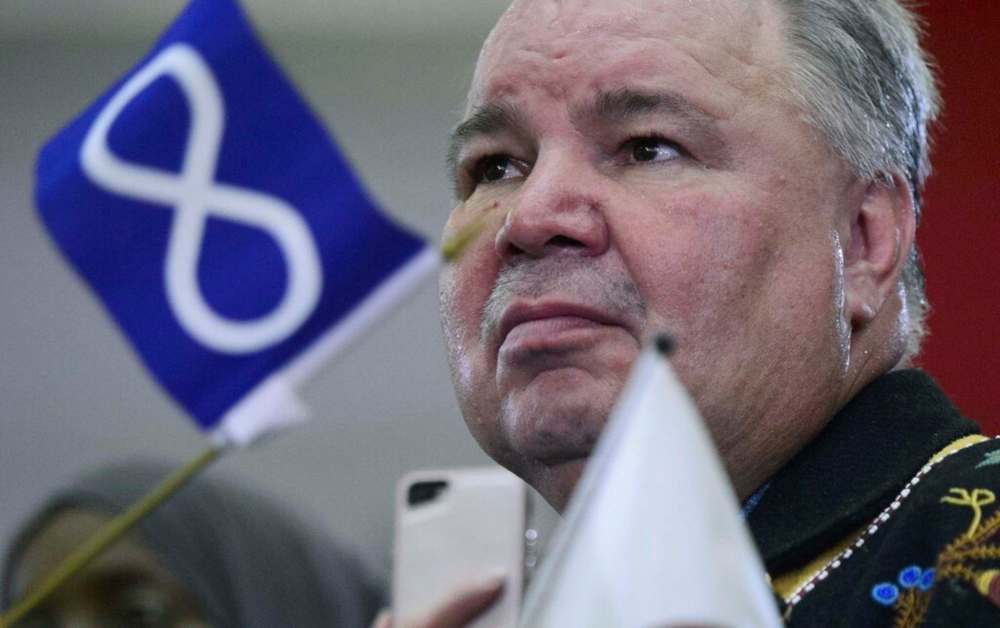
She also announced the launch of a new dashboard that breaks down COVID-19 immunizations among First Nations by tribal council and health region, which she said would be updated on Fridays.
None of these initiatives includes Métis people. The Manitoba Metis Federation said it’s frustrated it still has no representation on the province’s vaccine task force.
Federation president David Chartrand noted that many Métis people have relatives with First Nations status, and could get a vaccine by lying about being First Nations themselves.
“I pray my people will not be caught in a trap where they trade their identity for vaccination,” Chartrand wrote in a statement.
dylan.robertson@freepress.mb.ca

